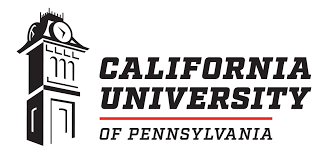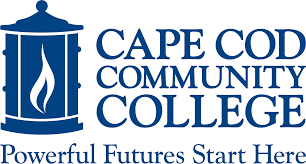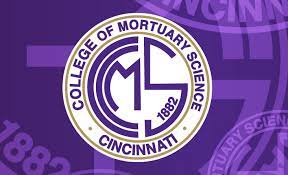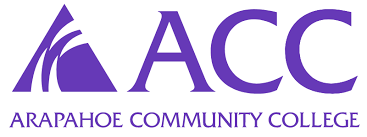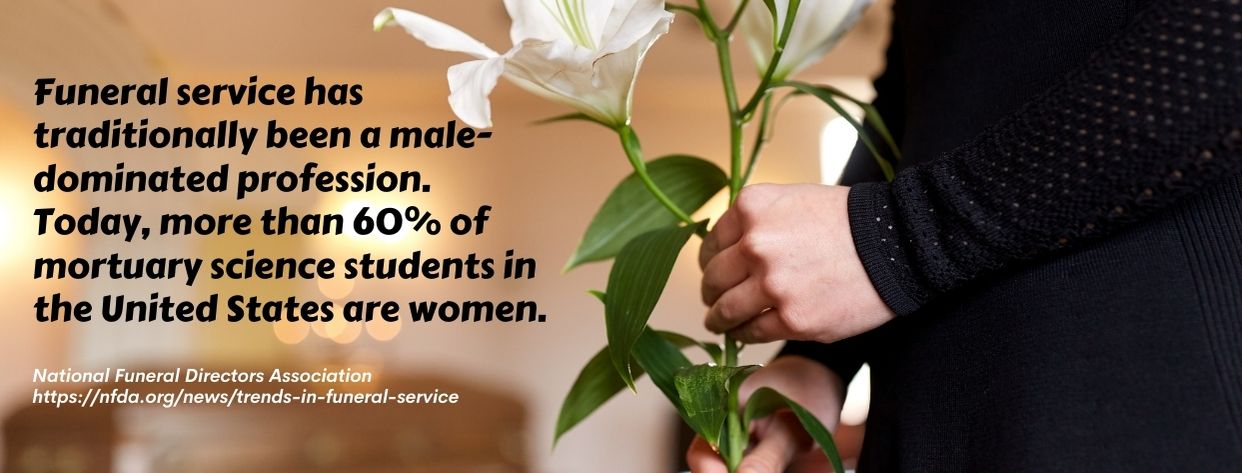Find Your Perfect School
A Funeral Service Worker plays an essential role in how a family deals with the grief of losing their loved one. As some deaths are expected, others are horrific and unexpected events that put families in a state of shock.
Becoming a Funeral Service Worker requires a unique set of skills and a deep sense of compassion and empathy. With a dedication to helping families during their most difficult times, this career path offers the opportunity to provide meaningful support and honor the lives of those who have passed.
Funeral Service Workers must be compassionate and readily available to accommodate clients on many levels. Find out more below to see if becoming a funeral service worker is for you!
Quick Summarization:
Funeral Service Workers are special people, no doubt. Although funeral service can be rewarding as you serve others, it can also be stressful due to the nature of the job.
There are many job opportunities within the field of funeral service for you to consider. Funeral service options include Funeral Home Manager, Funeral Director, Grief Counseling, Funeral Arrangers, Death Care Services, Clergy Services, and more.
Funeral practices differ for each family so, Funeral Service workers must be aware of cultural differences to suit the needs of their clients.
10 BEST SCHOOLS FOR A FUNERAL SERVICE WORKER DEGREE
California University of Pennsylvania
(Hybrid) BS in Biology with a Mortuary Science Concentration
Cal U’s BS in Biology with a Mortuary Science Concentration program partnership with the Pittsburgh Institute of Mortuary Science (PIMS). Students earn 120 credit hours during the four-year curriculum, with the courses distributed in eight semesters.
Learners spend three years at Cal U for their biology courses, including human physiology and anatomy, molecular and cell biology, and microbiology.
In their fourth year, students complete their training at PIMS, where courses on embalming and other topics related to becoming a funeral home director are discussed. Students earn PIMS Associate in Specialized Technology degree after completion.
The PIMS credits are transferred back to Cal U, where, upon graduation, these become part of the overall credit requirements for the bachelor’s degree. In effect, you earn both an associate’s and a bachelor’s degree!
Graduates must complete a one-year apprenticeship under the supervision of a licensed home funeral director before taking the Pennsylvania state licensing exam. Cal U has an exceptional track record for its pass rate in the licensing exam for funeral service professionals.
As a licensed funeral home director or embalmer, you have an edge in looking for entry-level positions. A bachelor’s degree and a license are also excellent credentials for becoming a coroner.
Programs Offered:
- Computer Engineering Technology
- Fisheries and Wildlife Biology
Come check out Cal U and PIMS’s cooperative BS in Biology with a Mortuary Science Concentration program! You will find that it’s a great way to earn two academic credentials in Funeral Service.
Southern Illinois University
(Online Degree Completion) BS in Mortuary Science and Funeral Service
Offered at SIU’s School of Health Sciences, the BS in Mortuary Science and Funeral Service degree completion program welcomes working funeral directors and embalmers with a prior associate degree.
Known as Track II, its online coursework can be completed in two years or less, depending on your transfer credits and course load. The associate in mortuary science and funeral service degree must be from an ABFSE-accredited program.
Interested individuals can start their classes at any time of the year due to the program’s continuous enrollment format. Once accepted, students must comply with the deadlines on assignments and tests, although the classes are asynchronous. Students can rely on the instructors and teaching assistants for academic support, particularly the learning platform.
A capstone project, too, demonstrates each student’s knowledge and skills learned in the program. Students can also get credit for their associate degree courses and, as a result, skip four UCC courses. These are English, Human Health, Humanity, and Interdisciplinary courses.
Graduates can sit for Illinois’ licensing exams after meeting its requirements, including academic credentials. Other state boards also accept SIU degrees for their licensing requirements.
SIU’s TracK I is for students without an associate degree and, thus, it’s a four-year program with an internship period, usually during the senior year’s spring semester. Students attend on-campus classes on this track.
Programs Offered:
- Nursing
- Dental Hygiene
Funeral Service Work: Choose between Track I and Track II of SIU’s BS in Mortuary Science and Funeral Service program. Whichever one you choose, your education will be among the best in the country!
Cape Cod Community College
(On-campus) AS in Funeral Service
Students in the two-year AS in Funeral Service program prepare for the licensure exams for embalmers and funeral directors in almost 50 states. The ABFSE-accredited program consists of professional courses that develop both technical and transferable skills for the job.
The 63-credit program features an extensive curriculum with academic courses and hands-on training in laboratories and funeral homes. The Bridgewater State University campus hosts the classes and the laboratory sessions.
The coursework includes milestone courses that must be completed within the indicated semester for on-track studies and graduation. These include Embalming Chemistry, Embalming, and Survey of Human Anatomy and Physiology. A minimum “C” grade is also required for retention.
Liberal Arts courses are included in the curriculum. English Composition, Human Communication, Elementary Statistics, and Social Foundations of Funeral Service are examples.
Graduates possess technical and conceptual knowledge about a diverse range of topics, including:
- Funeral directing includes death notifications, transfer or shipment of remains, and practices in burials and cremations
- Funeral service marketing from sourcing supplies and marketing products related to funerals
- Management of funeral homes and related establishments, including business plan preparation, financing, and human resources
- Counseling services for the bereaved and the community through courses in counseling, psychology, and crisis intervention
- Social and historical understanding of funeral services
- Compliance with rules and regulations, including public health and safety
Programs Offered:
- Performing Arts
- Human Services
4Cs’ AS in Funeral Service program is a shortcut way, so to speak, of getting your feet wet in the field of funeral service, so you must check it out!
State University of New York at Canton
(Hybrid) B.Tech in Funeral Services Administration
SUNY-Canton’s program is characterized by its top-notch academic curriculum and hands-on training based on contemporary demands for funeral service workers. In recognition of the different needs among individuals interested in the field, the university offers two tracks, namely:
- The four-year traditional student track welcomes students without prior funeral services experience. Earning the degree requires completing 16 FSAD courses aside from the general education, major, and elective courses. Internships, mock funerals, and other hands-on training provide students with the technical and transferable skills for their profession.
- The degree completion track is for working funeral directors and embalmers with an associate degree and relevant working experience. The courses are delivered online so students can continue working while earning their degrees. Every candidate’s transcripts will be evaluated so that a personalized program of study can be made. Completion time will vary depending on transfer credits and per semester course load, but two years is average.
The degree completion track grants academic credits for life experiences and from challenging exams. For life experience credits, the student must have at least three years of professional experience in funeral services and a portfolio. The challenge exams involve taking exams to determine basic competencies in specific courses.
For students in the traditional track, their last semester involves online classes. Their internship is a licensed funeral home of their choosing can then be completed with less pressure, schedule-wise.
Programs Offered:
- Engineering Technology
- Web Development
SUNY-Canton’s B.Tech in Funeral Services Administration program appeals to every preference in the field of funeral service, and it may well appeal to yours! Check it out now.
Wayne State University
(Hybrid) BS in Mortuary Science
Graduates of WSU’s BS in Mortuary Science program can apply for licensure in any of the 50 states. Due to its online format, students also have relative freedom in choosing their schedules.
Earning a degree in a mortuary science program doesn’t mean getting buried in debt either, as WSU is a public research university with affordable tuition and financial aid options.
Faculty members with extensive credentials, including funeral service experience, lead the online courses and encourage student success.
Students can access the learning platform (Canvas) 24/7 and get hands-on experience through an internship in a local funeral of their choosing. While asynchronous courses are typical, students must meet deadlines for assignments, postings, and tests.
Students must attend an on-campus orientation before classes begin and fulfill a two-week residential period at the end of the program. The program also allows students to choose which courses they want to take online.
The prerequisite coursework differs depending on whether you have a prior bachelor’s degree or not. The common courses for all students include Embalming, Restorative Art, Anatomy for Mortuary Science, and Psychology of Death and Dying.
The retention requirements include at least a 2.5 GPA. Every course must have at least a “C” grade, or it must be retaken. Professional courses, however, have a “one retake” restriction.
Programs Offered:
- Communication Sciences and Disorders
- Electrical Engineering
Are you interested in becoming a Funeral Service Worker? Don’t wait for the limited slots to fill up! Check out Wayne’s BS in Mortuary Science program now.
Cincinnati College of Mortuary Science
(On-campus Degree Completion) Bachelor of Mortuary Science
CCMS is known for its exclusive commitment to advancing mortuary science and funeral service, and it’s evident in its Bachelor of Mortuary Science (BMS) program! This is a 62-credit hours program with courses divided into four semesters and an average completion time of 16 months.
Students attend in-person classes and participate in clinical laboratory sessions the entire academic year. The intensive curriculum ensures that students retain their knowledge and skills and, thus, become workplace-ready upon graduation. But passing the state licensure exam is recommended for job competitiveness.
The coursework covers technical skills vital for success in mortuary science, including Embalming Microbiology Pathology and Embalming Theory.
Since compassion, professionalism, and diplomacy are also a must, students develop their soft skills through courses. These include Professional Relationships in Funeral Service and the Psychology of Grief.
Students may also receive these certifications with their BMS degree:
- Crematory Operations with extensive knowledge of the principles and practices, including legal liabilities of cremation
- Funeral Celebrants as part of the training with InSight trainers
- Mass Fatality Response through a FEMA-approved course where students learn effective strategies for assisting responders in mass fatalities and incident management
Transfer credits are accepted, but these must be from ABFSE-accredited colleges or ACE-accredited coursework.
Programs Offered:
- AAS in Mortuary Science
To get the most from your funeral service program, earn your BMS degree from CCMS and watch your career go through the roof!
Worsham College of Mortuary Science
(On-campus) Associate in Mortuary Science
Mortuary science and funeral service may not seem like a passion or a calling, but it is according to Worsham’s faculty and students! The Associate in Mortuary Science program’s curriculum reflects Worsham’s commitment to promoting mortuary science as a profession.
Students learn vital technical skills through intensive academics and hands-on training under the supervision of experienced faculty and funeral service professionals.
Worsham has an extensive alumni network across Illinois, too. Students can tap into the alumni network to find internship and employment opportunities even before their graduation.
Candidates for admission in this mortuary science program must possess minimum college credits to be considered for the one-year associate program. New student cohorts are accepted starting in March and September every year.
Once admitted, students must complete the academic requirements for 80 credit hours or 55 courses within a year. There are 20 weeks dedicated to embalming techniques conducted at the lab facilities of the Cook County Medical Examiner’s Office. Graduates earn a Cremation Operator Certificate, too.
Students also receive comprehensive instruction in funeral services, including relevant practices and laws. The funeral practices of the world’s major religions – Christianity, Islam, Hinduism, and Judaism – are also discussed. Students gain business management and finance skills as well as participate in the US military funeral services
Programs Offered:
- Mortuary Science
With excellent instruction, short-term duration, and affordable tuition, Worsham’s Associate in Mortuary Science degree program in funeral service is among the best! Check it out now.
Tidewater Community College
(On-campus) AAS in Funeral Service
Courses for the AAS in Funeral Service program are conducted on TCC’s Virginia Beach campus. This is a 4-semester (two years) program where students earn 67 credits for a bachelor’s degree.
Students benefit from a flexible and convenient schedule that allows for a good balance between work, studies, and personal responsibilities. Being detail-oriented, possessing excellent interpersonal skills, and not being squeamish are encouraged in the program.
Students must gain hands-on experience in an embalming lab, thus, these personal traits.
Graduates possess these professional competencies:
- Demonstrate effective technical skills in the handling of bodies of the deceased, from embalming and restorative art to funeral aftercare
- Conduct a wide range of funeral services from arrangement meetings to visitations, vigils, and ceremonies
- Handle the required documentation and procedures for the embalming and burial or cremation of human remains, and describe them to the bereaved family
- Ensure that public health and safety laws are applied in all matters related to funeral service
- Apply effective management skills in funeral home operations
- Act with compassion and professionalism toward the family and friends of the deceased
Graduates are also eligible to take the NBE certification exam, leading to a funeral service provider license.
TCC also offers an AAS in Funeral Directing program, a four-semester program with 61 credits at its Virginia Beach campus. Students gain skills in the management of funeral homes and related establishments.
Programs Offered:
- Accounting
- Culinary Arts
Jumpstart your career in funeral service within a year with TCC’s AAS in Funeral Service degree!
Arapahoe Community College
(On-campus and Online Options) AAS in Mortuary Science
With its small class sizes, credentialed faculty, and high academic standards, Arapahoe’s AAS in Mortuary Science program has produced the best funeral service professionals in the country! Students learn the technical skills in mortuary science and the soft skills necessary for success in a demanding profession.
Two tracks appeal to different student cohorts. First, Track I is for full-time students with prior college credits, particularly in general education and prerequisite courses.
Students can earn the degree in three semesters and undertake funeral service-relevant courses. These include embalming theory and laboratory, restorative arts and laboratory, and funeral directing and counseling.
The summer semester is spent on a funeral service internship and a review course for the NBE licensure exam. Students become well-prepared not only for the licensure exam but also for the realities of the job.
Second, Track II is for part-time students who have completed or are nearing completion of prerequisite courses, including general education courses.
This two-year program has five semesters of diverse courses, including embalming theory and practices, funeral service marketing and merchandising, and restorative art.
The summer semester during the second year is dedicated exclusively to an internship and review for the NBE licensure exam.
Students can also choose between on-campus and online delivery, depending on their location. Admission into the program means choosing one of these two options, but some students may qualify for the hybrid format. Online students must participate in on-campus embalming courses.
Programs Offered:
- Art History
- Physics
Whether you like online or on-campus studies, you will find them at ACC’s AAS in Mortuary Science program. Come and check it out now!
Northampton Community College
(On-campus) AAS in Funeral Service Education
Offered at NCC’s Bethlehem campus, the 94-credit AAS in Funeral Service Education program can be completed in six semesters or three years.
Students prepare for a year-long internship through courses in embalming theory, funeral directing, and funeral laws during their last two semesters. The latter covers relevant laws, rules, and regulations in Pennsylvania and the US.
The comprehensive coursework results in students gaining a wide range of skills, including but not limited to:
- Handling of human remains according to the wishes of the deceased and their family, from the embalming process to the burial ceremony
- Preparing the documents required by the law, including death certificates and burial permits, as well as describing their importance and procedures to the bereaved family
- Guiding grief-related services by offering support groups and counseling to the family and friends of the deceased
- Demonstrating compassion and sensitivity toward family and friends in all interactions
- Managing the funeral home, including its marketing and merchandising, human resources, and finances
Candidates are evaluated based on their academic track record, so it’s among the most selective programs. The admission requirements are at least a 2.5 overall GPA and at least “C” grades in high school chemistry and biology. Students must also be physically and mentally fit due to the rigorous program of study.
Programs Offered:
- Communication Design
- Applied Psychology
Do you want an associate degree in funeral service that you can be proud of and that will be your ticket toward a successful career? If yes, enroll in NCC’s AAS in Funeral Service Education program now!
Frequently Asked Questions
What does a Funeral Service Worker do?
As you can imagine, losing a loved one is upsetting, stressful, and often life-changing. Often, funeral service workers attend burial services to assure that everything runs smoothly and provides instructions for families and pall bearers as the service is performed.
As a Funeral Service Worker, you will have many responsibilities, such as:
- Consult with clients to choose final arrangements; planning traditional funeral arrangements, as well as other cultural services requested by clients,
- Inform of all funeral service options,
- Works closely with surviving family members,
- Schedule visitations,
- Schedule and direct memorial services,
- Pick up the deceased body and prepare for burial or cremation,
- Handle cremations and ashes,
- Provide support groups to counsel families, often based on their religion and culture,
- Resolve insurance claims and file other legal documents, such as death certificate with the state, Social Security Administration, or Veteran’s Administration, as well as other administrative duties,
- Handle pre-planned funeral arrangements,
- Adhere to licensing laws,
- And, much more, depending on the extent of your funeral service training!
How do I become a Funeral Service Worker?
Generally, to enter the funeral service business, you will be expected to have earned an associate’s degree in funeral service or mortuary science. Your program should take you about two years to complete.
Depending on your potential employer, they may prefer you to have a bachelor’s degree in the field. A voluntary certification program can provide additional training as well; therefore, leading to career advancement.
What will I learn in an Associate of Funeral Service or Mortuary Science degree program?
Coursework will include:
- Grief Counseling,
- Business Law and Ethics,
- Administrative Duties,
- Restorative Techniques,
- Death Care Services
- Embalming,
- And, much more!
What are the requirements for obtaining a job in a Funeral Service career?
To become a funeral service worker, most employers will require you to have an associate degree and be at least 21 years old. If hired, you will receive on-the-job training under the watch of a licensed Funeral Manager (usually lasting one to three years), and then you will need to pass your licensing exam per your state’s requirements.
What is the accrediting agency for schools offering associate degrees in the funeral industry?
Most community colleges offer two-year associate degrees designed to assist you in the Funeral Service career. The American Board of Funeral Service Education (ABFSE) is the appropriate accrediting agency to look for.
What jobs are available within the field of Funeral Service?
If you are interested in entering the funeral industry, there are several career options to consider, such as:
- Funeral Home Director
- Funeral Director
- Crematory Technician
- Mortician/Embalmer
- Ceremonialist
- Funeral Supply Sales
- Armed Services Funeral Services
- Pathology Technician
- Funeral Service Sales
- Administrative Services
- Grief Counseling
- Cosmetologist/Make-up Artist
How much money do Funeral Service Workers earn?
According to the Bureau of Labor Statistics, Funeral Home Managers earned median annual wage of $72,110 as of May 2022, with the highest 10% earning upwards of $133,010 per year.
Morticians, Funeral Arrangers, and Undertakers earned a median annual wage of $51,570, with the highest 10% earning upwards of $93,250 annually during the same time period, according to the Bureau of Labor Statistics.
Is there a positive job outlook for Funeral Service personnel?
According to the Bureau of Labor Statistics’ employment projections data, the job growth rate for Funeral Service Workers is projected to grow by 3% between 2022 and 2032, adding about 5,700 new positions to the job market each year.
Am I suited to work in the Funeral Services business?
Becoming a Funeral Service Worker is not the job for everyone, as many do not want to be exposed to this stage of the life cycle… which is death. Understandably, this field can be stressful and depressing for some.
To excel in this field, you should have the following qualities, in addition to the proper training:
- Empathetic and compassionate towards others,
- Good communication skills,
- Interpersonal skills,
- Excellent time-management skills,
- Physical strength,
- Well-organized,
- Good listening skills,
- Creative,
- Mentally strong,
- Reliable,
- Works well under pressure,
- Have exceptional business skills.
Do Funeral Service Workers need licenses or certifications?
Yes, most states will require funeral service workers to be licensed. Qualifications vary per state; however, typical requirements include:
- A minimum of 21 years old,
- Graduated from an ABFSE accredited associate degree program,
- One to three years of on-the-job training,
- And, of course, pass the national board exam.
If a funeral service worker is employed in multiple states, they will need the applicable license to work there. Funeral service workers will need to continue their education to keep their licenses current.
In addition, you may be required to have certifications in cremation, offered by the National Funeral Directors Association (NFDA), International Cemetery, Cremation and Funeral Association (ICCFA), or the Cremation Association of North America (CANA).
Will I need to work an internship for experience to be a Funeral Service Worker?
After graduating from your degree program, on-the-job experience as a funeral service worker will be invaluable and is required to obtain your license.
If you are a high school student interested in working in the funeral service business, you should seek an internship during the summer for wonderful real-world work experience and a feel for the industry before entering a degree program.
Internships are great for “testing the waters,” as it’s not for the faint of heart!
What are the differences between being a Funeral Service Worker and a Mortician?
- Job Responsibilities: A Funeral Service Worker assists in the preparation and coordination of funeral services, such as setting up the funeral home, arranging transportation of the deceased, and supporting mourners during the service. A Mortician, on the other hand, is responsible for the overall preparation and presentation of the deceased, including embalming, dressing, and casketing the body.
- Education and Training: While both careers require a high school diploma, a Funeral Service Worker typically receives on-the-job training and may attend specific workshops or certificate programs. A Mortician, on the other hand, is required to complete a degree in Mortuary Science and may also need to pass state licensure exams.
- Licensing and Regulations: Funeral Service Workers are not typically required to hold a license, but some states may have regulations for them to follow. Morticians, on the other hand, must obtain a state-specific funeral director or embalmer license to practice.
- Specializations: Funeral Service Workers may work in various areas of the funeral industry, such as arranging services, clerical work, or assisting with cremations. Morticians, however, are specialized professionals who focus on the preparation and presentation of the deceased and may also offer additional services such as grief counseling and funeral planning.
- Client Interaction: Funeral Service Workers often interact with the family and friends of the deceased, providing comfort and support during the grieving process. Morticians primarily work behind the scenes and have limited interaction with the family unless they are also involved in funeral planning.
- Work Environment: Funeral Service Workers typically work in a funeral home or mortuary, while Morticians may also work in hospitals, nursing homes, or other locations where deaths occur.
- Salary and Job Outlook: According to the Bureau of Labor Statistics, the median annual salary for Funeral Service Workers in 2020 was $33,530, while Morticians earned a median annual salary of $57,580. The job outlook for Funeral Service Workers is projected to decline, while the job outlook for Morticians is expected to stay relatively stable.
Key Points to Ponder
- Funeral service managers oversee the funeral home in which they are employed as they manage their client’s needs, as well as other employees within funeral services.
- Most funeral service workers attend associate and bachelor’s degree programs in mortuary science education.
- A degree program will teach business law, ethics, arranging memorial services, embalming, restorative techniques, and much more.
- The funeral home business yields a lucrative living and a positive job growth rate.
- Funeral service workers have various job responsibilities, ranging from directing funeral services to administrative duties to embalming and everything in between.
- The National Funeral Directors Association (NFDA) provides valuable support to morticians, undertakers, and funeral workers.
- By utilizing accredited mortuary science programs, funeral service workers can gain the skills needed to run a funeral home business efficiently while attending to grieving friends and families upon a person’s death.
- Grief counseling and compassion are a large part of becoming a funeral service worker due to the sensitive nature of the delicate and emotional matter of losing a loved one.
- Most states require funeral directors to adhere to licensing requirements.
- Earn an associate’s degree in funeral service today. Many funeral service workers find this to be a very rewarding career choice!
For more information, watch this!
Additional Information:

